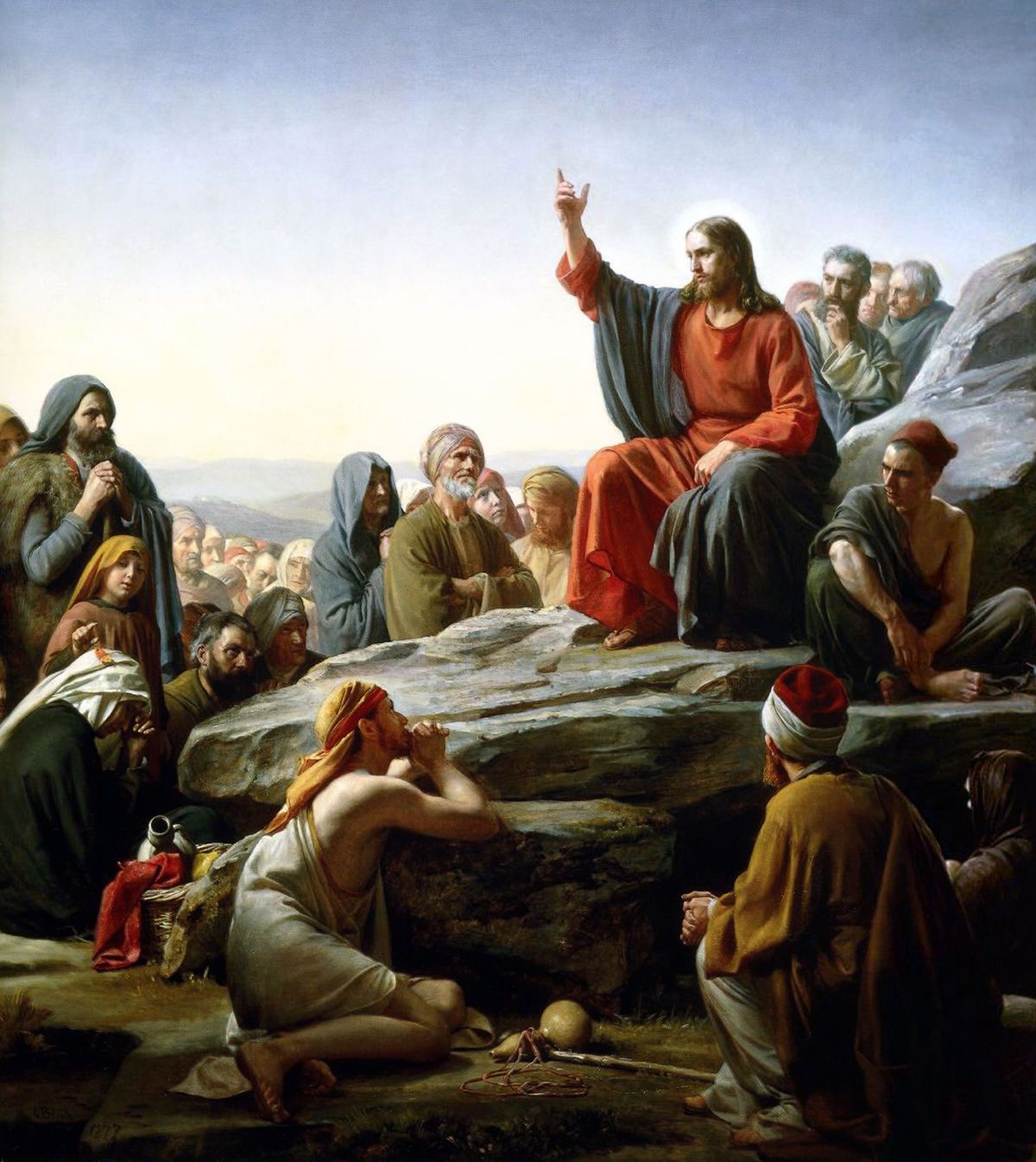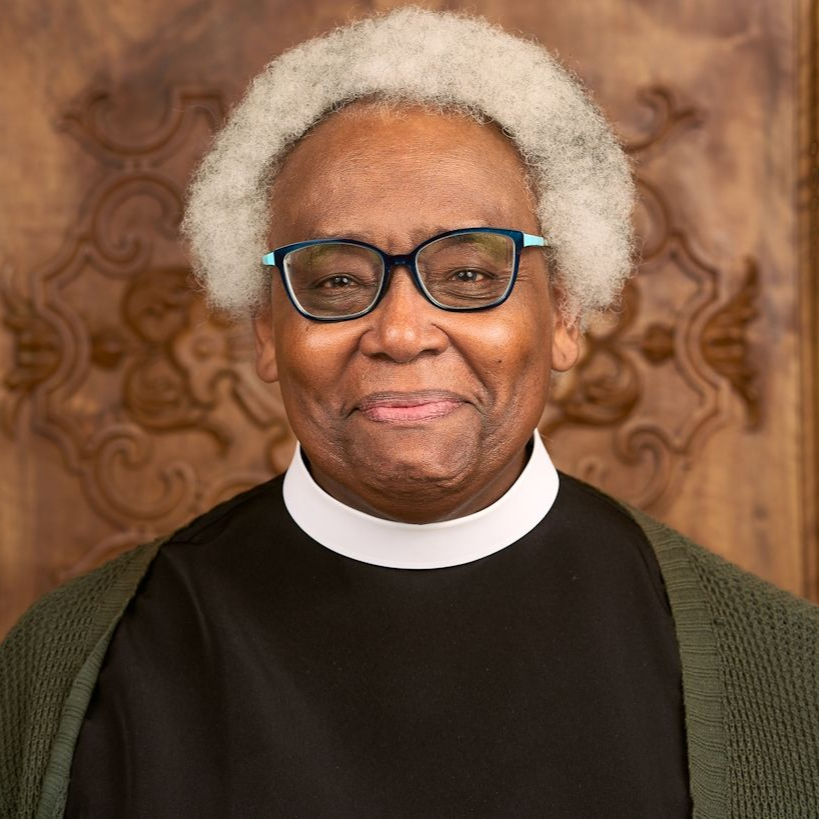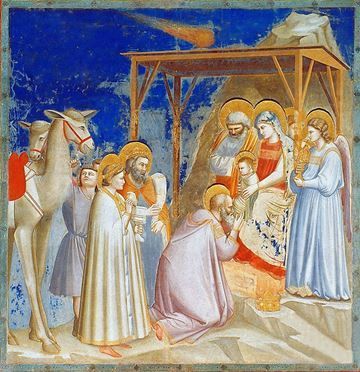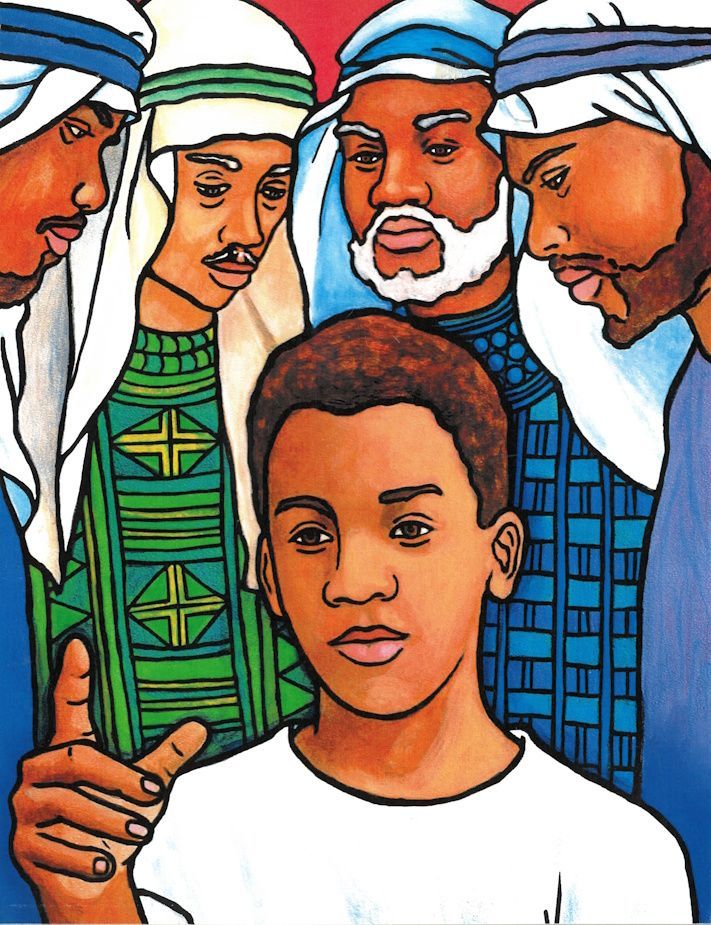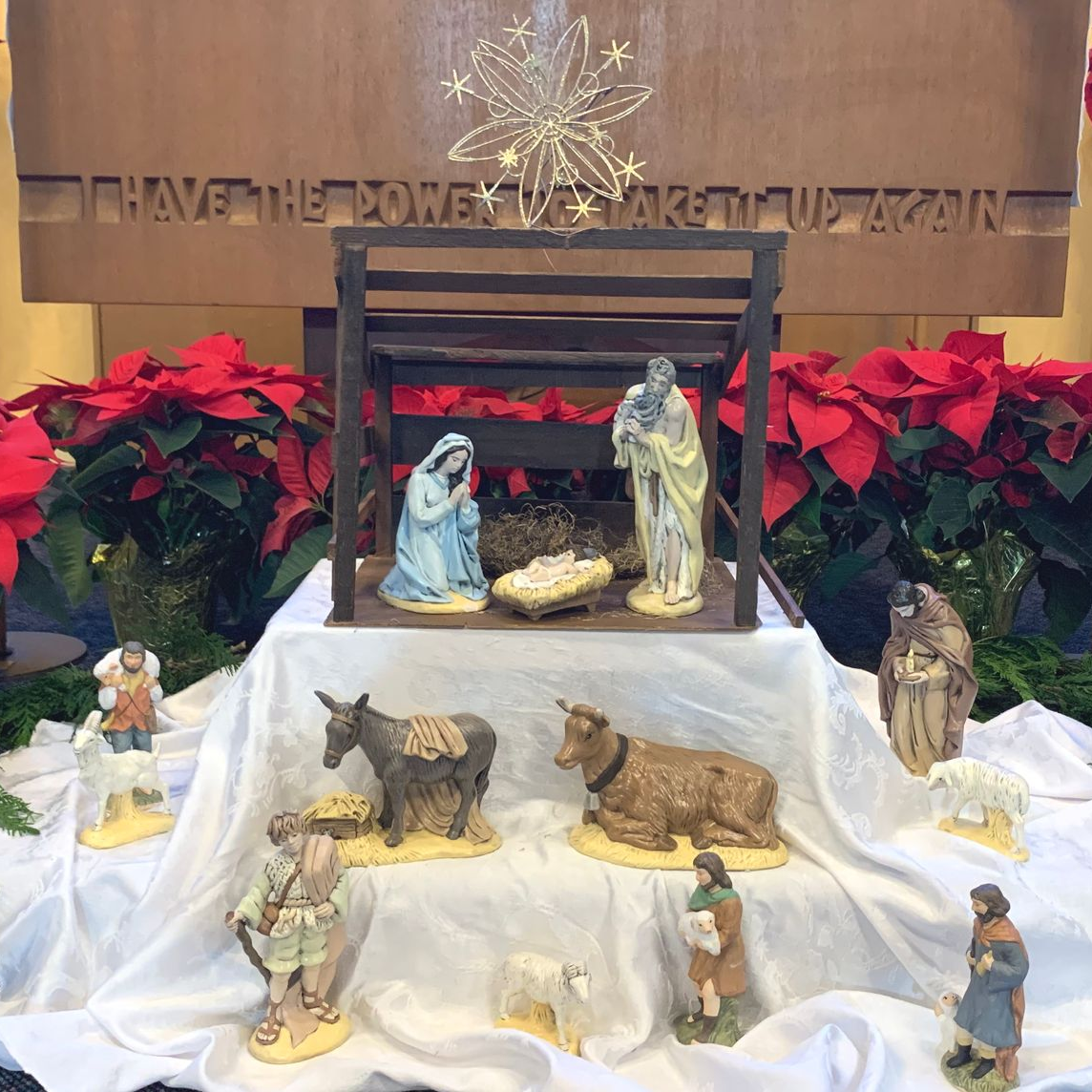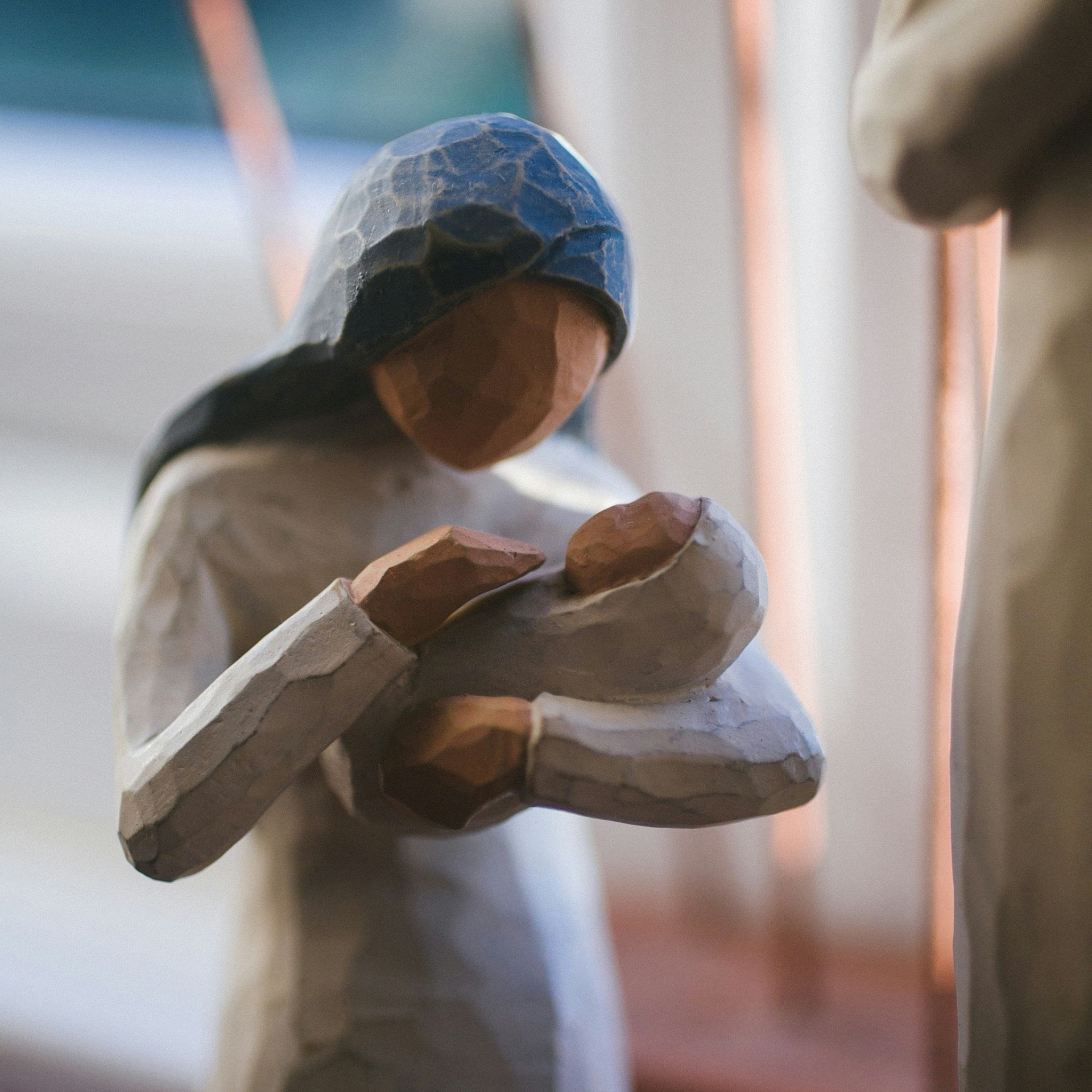Homeland Security
The spiritual impulse is the urge to bridge the gap between the actual world (which is a mess) … and the security of a true homeland that we fear may not exist.
2025-42
sermon preached at Church of the Good Shepherd, Federal Way, WA
www.goodshepherdfw.org
by the Rev. Josh Hosler, Rector
The Ninth Sunday after Pentecost (Proper 14C-Tr1), August 10, 2025
Isaiah 1:1, 10-20 ;
Psalm 50:1-8, 23-24 ;
Hebrews 11:1-3, 8-16 ;
Luke 12:32-40
We all wish we could feel a little more secure, don’t we? Especially these days. We remember times when things felt a little more under control—as if there were ever a time when this was truly the case.
A scene from my childhood came back to me this week. I’m sitting at the dinner table circa 1986 with my nuclear family of four, but there are five chairs. One of our cats, Grenada, has taken up his usual place in the extra chair, and he’s looking around the table at us as we share dinner conversation, and we’re poking fun at him for his presumptuousness. In this moment, I am content … secure. My family is all here, and I am safe, and I have everything I need.
This memory is a good representation in my mind of the word “home.” I hope that each of you might be able to come up with a similar image. But none of us gets to live permanently in a state of childhood contentment.
To be sure, today’s readings won’t allow it. We hear the Prophet Isaiah, in the first chapter of his book, in great discontent: “Hear the word of the Lord, you rulers of Sodom! Listen to the teaching of our God, you people of Gomorrah!”
OK. To whom is Isaiah speaking?
Great. And in which book of the Bible were the cities of Sodom and Gomorrah famously destroyed?
Right. Genesis. The very first book chronologically.
And when did Isaiah live? You don’t have to know the century, but do understand that it was loooooong after Genesis. There is no longer any Sodom or Gomorrah. The passage just got a lot deeper, didn’t it? Why is Isaiah referring to the people of Judah as Sodom and Gomorrah? Well, what were the sins of Sodom and Gomorrah? Arrogance. Bullying. Gluttony. Complacency.
What good are temple sacrifices offered to God by those who are just going to keep committing such atrocious sins?
It is commonplace among the prophets to claim that God does not appreciate the people’s burnt offerings—despite the requirement of them in the Law of Moses. We find this not only in Isaiah, but also in Micah, Hosea, and Amos—and in some of the psalms. All these texts existed as sacred Jewish scriptures right alongside the ongoing temple sacrifices. How could this be?
Because the ancient Jews were not literalists. They knew this was all part of the ongoing story of the relationship between God and God’s chosen people. They knew that Isaiah was not speaking literally to the long-gone residents of Sodom and Gomorrah. They understood how metaphor works.
So when they heard Isaiah speaking for God and saying, “I don’t want your temple sacrifices,” nobody pointed to this text and said, “We should shut down temple sacrifices immediately.” This was not the ask. You’ll also find in the works of the prophets many references to the Chosen People someday offering sacrifices in righteousness again, as a community restored and reconciled to one another and to God.
Rather, God is saying, “I hate all your hypocritical efforts to appease me!”
Let’s look at the situation on our own terms. We don’t have a temple, but we do have church buildings, and they are a money drain, aren’t they? We spend nearly 20% of Good Shepherd’s budget on facilities maintenance, and that’s not even counting the long-term capital projects.
What good does it do for us to come here and pray every Sunday and then get back to our lives? Wouldn’t God rather we give up all our buildings so that we are forced out of them and into the community, where there is so much more need? If we met in one another’s homes or in public parks, we would have a very small budget. We could give much more of our money away—not just the roughly 2% we do now.
People outside the church would love to see this happen. When will Christians start acting like real Christians, they ask, instead of hiding away in buildings? If churches have property, why aren’t they housing the homeless on it? And if Christians have a better message than the rest of us, well … shouldn’t they actually live their lives better than the rest of us? Why are so many of them obvious sinners?
On its face, it's not an unfair critique. We all harbor a longing for a better world, and Christians down the centuries have frequently implied that “church people” are somehow better than others. Maybe if we actually were better than others, the buildings would be seen as an acceptable investment.
While I honor the ideal, the insistence that Christians be held to a higher standard misses the point. We do not live in the ideal world, but in the real world that we and God are making together.
Now, with God’s help, we do know how to make the ideal world. The prophets banged that drum all along: “Remove the evil of your doings from before my eyes; cease to do evil, learn to do good; seek justice, rescue the oppressed, defend the orphan, plead for the widow.”
Then Jesus redoubled the beat: “Sell your possessions, and give alms. Make purses for yourselves that do not wear out, an unfailing treasure in heaven, where no thief comes near and no moth destroys. For where your treasure is, there your heart will be also.”
Who wouldn’t love to see Christians living like this? It might even convince many others to join us—if they actually saw results! The solution really is that simple.
It’s also the most difficult thing we can imagine. It seems to be in direct contrast to human nature.
We talked last week about the challenge of giving our money away. Now imagine restructuring our very lifestyles in such a way that we will not allow anyone to remain poor, unhoused, or oppressed. How would we start? Would enough people be on board that it would actually make sense? Who’s going to go first?
Why do we find ourselves unable to turn the world we know is all wrong into the world as we know it should be? Why do we continue as hypocrites, not taking the leap Jesus offers, to actually live today in the kingdom that it is God’s good pleasure to give us? The world continues to be all wrong—as if it were not our real home.
The author of the Letter to the Hebrews says that Abraham and Sarah knew they were “strangers and foreigners on the earth”—that when they packed up their tents and set out from Haran to follow God’s call, they were “seeking a homeland.” Furthermore, they both died without seeing that homeland. All their lives, they caught glimpses and followed, and then they left the continuation of the quest to their children and grandchildren.
They lived a universal human experience: the feeling that we don’t quite belong in this world. The spiritual impulse is the urge to bridge the gap between the actual world … and the security of a true homeland that we fear may not exist. Many people leave the church because they think it should be that homeland, and they have found that it is not. It seems to be an indictment of the church that they have found other communities that feel more like the homeland than the church does.
But the homeland God promises us is not primarily about security. It’s about trust. It’s about giving. It’s about using our energy in ways that will benefit others—not just ourselves. Trust helps us endure greater insecurity for the sake of building up the security of others.
Every week when we assemble and share bread and wine, we reinforce the idea that somehow, at the center of our longing for a homeland, is the church, founded by the Holy Spirit. God really is in relationship with us in a special way here. Yet so much of the time, the church is light-years away from resembling the homeland we long for.
Meanwhile, there are plenty of people who have left churches that hurt them but haven’t given up on finding one that won’t. I’m sure that includes some of you here today. You’re seeking a church that is more like that homeland. But to hold out for perfection is futile.
I urge you to dig into a place that’s just good enough and get to work, so that you find every opportunity to see the church actually acting like the church. Believe it or not, that happens sometimes. It happens often! Our buildings, as expensive as they are, offer a modicum of the security we need to begin to live more boldly—to go out of our way to be in one another’s lives and to love one another.
My invitation to you today is to listen to your longing for a homeland and know that to put down roots in the church is to invest in this homeland. Inhabit your longing and let it fuel you every single day. We don’t create the perfect homeland; it’s already been prepared for us. Every day we get to decide whether to live in it, in this very moment. When we do, we surprise ourselves. At other times, the Holy Spirit surprises us. And in moments like that, when the church is being what it’s actually supposed to be, people get a chance to glimpse the joy of that homeland together.
Our true homeland leaks through the cracks of this world and this nation and this community in surprising ways all the time. It leaked through at the dinner table when I was a teenager, with our cat Grenada sitting there, even more content than I, watching us enjoy time together as a family. In that moment and in many others, I was truly home, and I was seated at the table, and God was serving me spiritual food. How could I be worthy of such gifts?
I’d like to close with the words of George Herbert, who wrote this 400 years ago, probably after hearing today’s gospel reading.
Love (III) – George Herbert (1593-1633)
Love bade me welcome. Yet my soul drew back
Guilty of dust and sin.
But quick-eyed Love, observing me grow slack
From my first entrance in,
Drew nearer to me, sweetly questioning,
If I lacked any thing.
A guest, I answered, worthy to be here:
Love said, You shall be he.
I the unkind, ungrateful? Ah my dear,
I cannot look on thee.
Love took my hand, and smiling did reply,
Who made the eyes but I?
Truth Lord, but I have marred them: let my shame
Go where it doth deserve.
And know you not, says Love, who bore the blame?
My dear, then I will serve.
You must sit down, says Love, and taste my meat:
So I did sit and eat.



